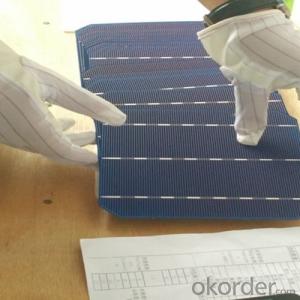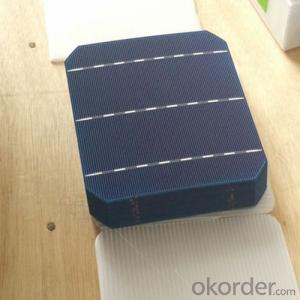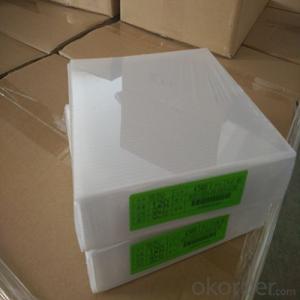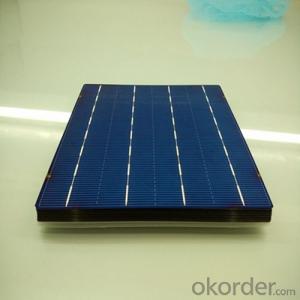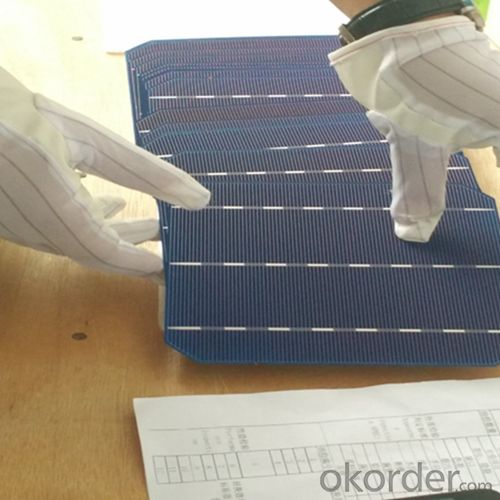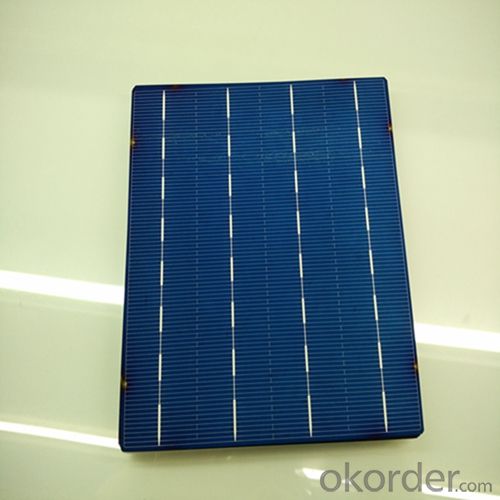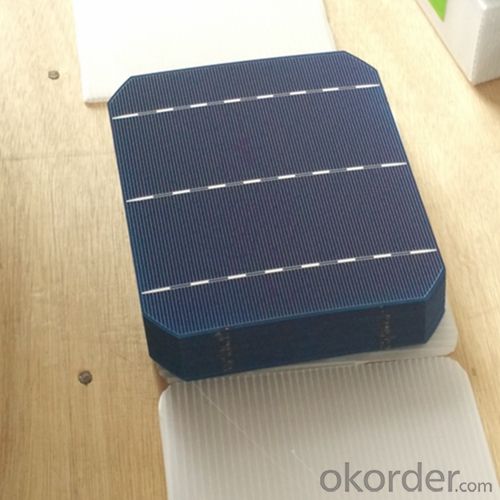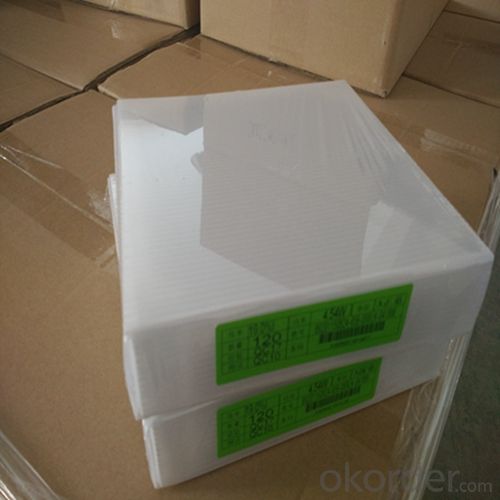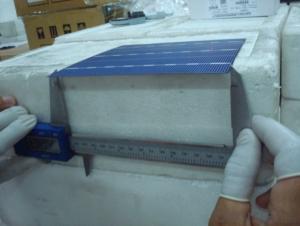Best Solar Cells To Buy:Poly 156x156mm2 Solar Cells Made in Class 1
- Loading Port:
- Shanghai
- Payment Terms:
- TT OR LC
- Min Order Qty:
- 6500 watt
- Supply Capability:
- 6000000 watt/month
OKorder Service Pledge
OKorder Financial Service
You Might Also Like
The operation of a photovoltaic (PV) cell requires 3 basic attributes:
The absorption of light, generating either electron-hole pairs or excitons.
The separation of charge carriers of opposite types.
The separate extraction of those carriers to an external circuit.
In contrast, a solar thermal collector supplies heat by absorbing sunlight, for the purpose of either direct heating or indirect electrical power generation from heat. A "photoelectrolytic cell" (photoelectrochemical cell), on the other hand, refers either to a type of photovoltaic cell (like that developed by Edmond Becquerel and modern dye-sensitized solar cells), or to a device that splits water directly into hydrogen and oxygen using only solar illumination.Characteristic of Mono 156X156MM2 Solar Cells
You are gaining energy independence - add battery backup power for even greater energy security
The cost of electricity is only going to rise – insure against that rising cost
Adaptive cells change their absorption/reflection characteristics depending to respond to environmental conditions. An adaptive material responds to the intensity and angle of incident light. At the part of the cell where the light is most intense, the cell surface changes from reflective to adaptive, allowing the light to penetrate the cell. The other parts of the cell remain reflective increasing the retention of the absorbed light within the cell.[67]
In 2014 a system that combined an adaptive surface with a glass substrate that redirect the absorbed to a light absorber on the edges of the sheet. The system also included an array of fixed lenses/mirrors to concentrate light onto the adaptive surface. As the day continues, the concentrated light moves along the surface of the cell. That surface switches from reflective to adaptive when the light is most concentrated and back to reflective after the light moves along
Mechanical data and design
Format | 156mm x 156mm±0.5mm |
Thickness | 210μm±40μm |
Front(-) | 1.5mm bus bar (silver),blue anti-reflection coating (silicon nitride) |
Back (+) | 2.5mm wide soldering pads (sliver) back surface field (aluminium) |
Temperature Coefficient of Cells
Voc. Temp.coef.%/K | -0.35% |
Isc. Temp.coef .%/K | +0.024%/K |
Pm.Temp.coef. %/K | -0.47%/K |
Electrical Characteristic
Effiency(%) | Pmpp(W) | Umpp(V) | Impp(A) | Uoc(V) | Isc(A) | FF(%) |
18.35 | 4.384 | 0.526 | 8.333 | 0.63 | 8.877 | 78.39% |
18.20 | 4.349 | 0.526 | 8.263 | 0.63 | 8.789 | 78.54% |
18.05 | 4.313 | 0.525 | 8.216 | 0.63 | 8.741 | 78.32% |
17.90 | 4.277 | 0.524 | 8.161 | 0.625 | 8.713 | 78.04% |
17.75 | 4.241 | 0.523 | 8.116 | 0.625 | 8.678 | 77.70% |
17.60 | 4.206 | 0.521 | 8.073 | 0.625 | 8.657 | 77.36% |
17.45 | 4.170 | 0.519 | 8.039 | 0.625 | 8.633 | 76.92% |
17.30 | 4.134 | 0.517 | 8.004 | 0.625 | 8.622 | 76.59% |
17.15 | 4.096 | 0.516 | 7.938 | 0.625 | 8.537 | 76.80% |
17.00 | 4.062 | 0.512 | 7.933 | 0.625 | 8.531 | 76.18% |
16.75 | 4.002 | 0.511 | 7.828 | 0.625 | 8.499 | 75.34% |
16.50 | 3.940 | 0.510 | 7.731 | 0.625 | 8.484 | 74.36% |
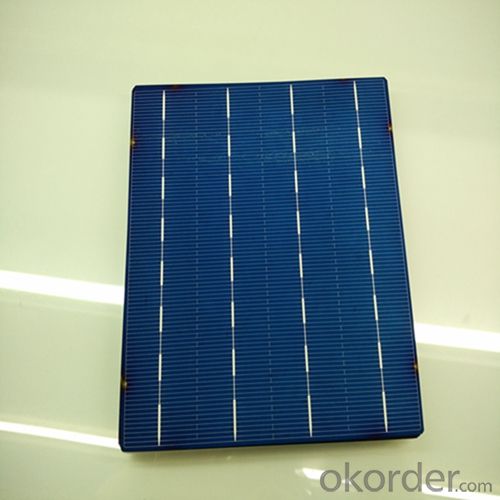
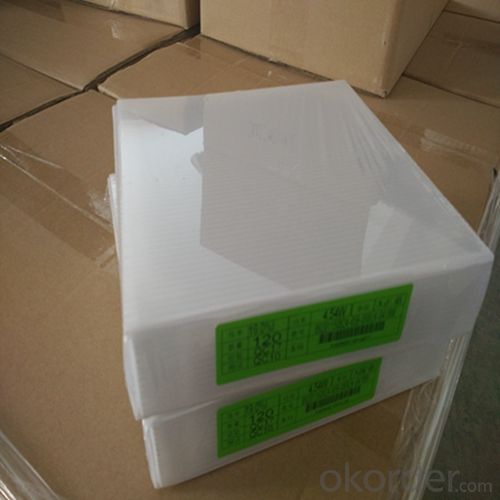
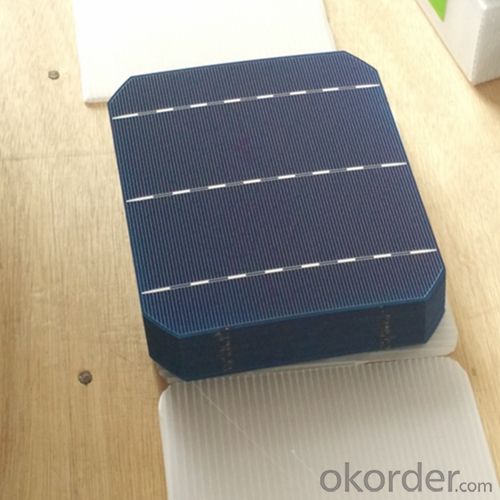
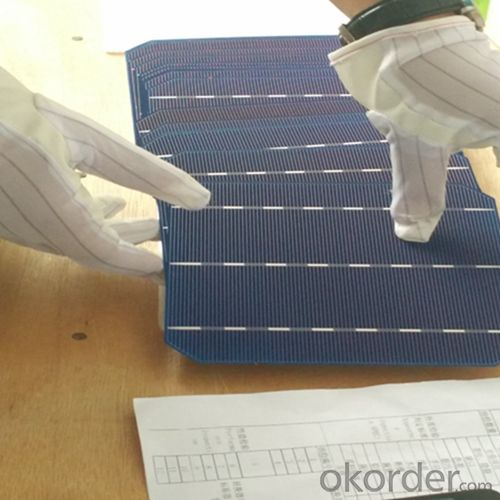
 FAQ
FAQ
Q: What price for each watt?
A: It depends on the quantity, delivery date and payment terms, generally Large Quantity and Low Price
Q: What is your size for each module? Can you tell me the Parameter of your module?
A: We have different series of panels in different output, both c-Si and a-Si. Please take the specification sheet for your reference.
Q: What is your size for each module? Can you tell me the Parameter of your module?
A: We have different series of panels in different output, both c-Si and a-Si. Please take the specification sheet for your reference.
- Q: How do solar cells perform in areas with frequent earthquakes?
- Solar cells are designed to withstand earthquakes to some extent, but the performance can be affected depending on the severity of the earthquake. If the solar cells are properly installed and secured, they can generally withstand moderate earthquakes without significant damage. However, in areas with frequent and strong earthquakes, additional measures like reinforced mounting systems may be necessary to ensure the long-term performance and durability of the solar cells.
- Q: What is a High-efficiency electric solar cell panel?
- A high-efficiency electric solar cell panel is considered to be lor cost, high result based on it's performance running under certain circumistance. In this case, I think it should be the crystalline solar panel.
- Q: What is the role of solar cells in powering remote monitoring systems?
- Solar cells play a crucial role in powering remote monitoring systems by harnessing energy from the sun and converting it into electrical power. This ensures that these systems can operate efficiently and independently in remote locations where access to a traditional power grid may not be feasible or reliable. The solar cells collect sunlight and convert it into electricity, which is then stored in batteries or used directly to power the monitoring equipment. This sustainable and renewable energy source enables continuous operation of remote monitoring systems, making them more reliable and cost-effective in monitoring and collecting data in areas with limited or no access to conventional power sources.
- Q: How do solar cells convert sunlight into electricity?
- Solar cells convert sunlight into electricity through a process called the photovoltaic effect. The cells are made of semiconductor materials, usually silicon, that absorb photons from the sunlight. These absorbed photons excite the electrons in the material, allowing them to break free from their atomic bonds. The freed electrons then flow through the cell's material, creating an electric current. This current can be harnessed and used as electricity to power various devices and systems.
- Q: On the parallel connection of solar cells
- As for the solar cells in the string, parallel combination is Causing the damage of the battery pack, I think it is first necessary to make sure that the "combined" solar cells should have the same characteristics, and that the various parameters between them should be the same or similar, at least several major parameters must be the same, to achieve these Conditions can be combined after the combination; if the series combination in the use of a group of solar cells damaged and broken, then the other groups will not power the power supply equipment, because the entire line has been in the open state,
- Q: What is the accurate explanation for the sun solar cell power system? How does it work?
- The sun solar cell power system work in following way: Solar cell module can convert solar energy into electrical energy, and solar energy charging and discharging control device as a central control device.
- Q: Can solar cells be used to power remote transportation systems?
- Yes, solar cells can be used to power remote transportation systems. Solar cells are a reliable and sustainable source of renewable energy that can be installed on vehicles or infrastructure to provide power for electric motors, batteries, or other components. This allows remote transportation systems such as electric cars, boats, or drones to operate efficiently without relying on fossil fuels or traditional power grids, making them more environmentally friendly and cost-effective in remote areas.
- Q: Can solar cells be used in greenhouses?
- Yes, solar cells can be used in greenhouses to generate electricity and power various systems within the greenhouse, such as lighting, ventilation, and irrigation. This helps reduce the reliance on traditional energy sources and promotes sustainable and eco-friendly practices in greenhouse farming.
- Q: Can solar cells generate electricity at night?
- No, solar cells cannot generate electricity at night as they rely on sunlight to produce electricity.
- Q: How much electricity can a solar cell generate?
- The amount of electricity that a solar cell can generate depends on various factors such as the size of the cell, the efficiency of the cell, the intensity of sunlight, and the duration of exposure. Generally, a solar cell can produce anywhere from a few watts to several hundred watts of electricity.
Send your message to us
Best Solar Cells To Buy:Poly 156x156mm2 Solar Cells Made in Class 1
- Loading Port:
- Shanghai
- Payment Terms:
- TT OR LC
- Min Order Qty:
- 6500 watt
- Supply Capability:
- 6000000 watt/month
OKorder Service Pledge
OKorder Financial Service
Similar products
Hot products
Hot Searches
Related keywords
